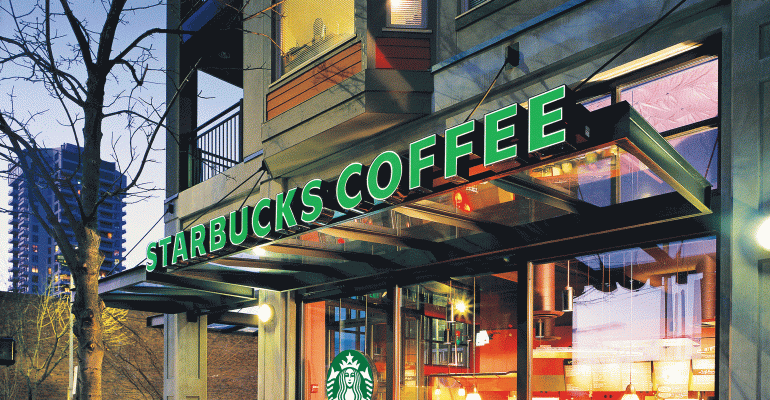Starbucks held its annual shareholders meeting Wednesday on the heels of CEO Kevin Johnson announcing his retirement from the company, effective April 4. Besides addressing the leadership succession plan, Starbucks executives discussed hot topics with their shareholders, including unions, expansion plans and environmental goals.
Here’s what you should take away from the shareholders meeting:
Starbucks intends to announce a new CEO by the fall
This week, Starbucks CEO Kevin Johnson announced his retirement from the company, effective April 4. Starbucks founder and former CEO Howard Schultz will serve as interim CEO until a replacement is announced. At the shareholders’ meeting, the coffee giant hinted that a search for a new company leader is well underway, with hopes to announce the next Starbucks CEO by the fall.
“During his time, Kevin expanded the company's reach through the global coffee alliance with Nestle, which now operates in nearly 80 markets,” Starbucks non-executive board chairwoman Mellody Hobson said Wednesday. “He also devised and executed the growth at scale agenda, both significantly increased shareholder value. Our digital platform is now a key driver of our customer interactions around the globe.”
The expansion goal is 55,000 stores by 2030
Starbucks is not slowing down its international expansion plans with a goal of reaching 55,000 stores globally by 2030.
“Continued investments in partners-focused initiatives will enable the company to continue to introduce the Starbucks experience to a growing number of customers and satisfy their shifting preferences to meet customers wherever they are,” Starbucks said in a statement.
Starbucks has plans to go zero-waste
With the announcement this week that Starbucks will be offering more reusable cup options and moving away from paper cups by 2025, the company is entering a new era of serious environmental stewardship. Starbucks announced in the shareholders meeting a plan to go zero-waste in the long-run.
“I genuinely feel like I'm working for a company that does care. In the initiatives such as moving towards paper straws, moving towards eliminating unnecessary plastics and sustainable packaging is wonderful,” Brady Brewer, Starbucks chief marketing officer said during Wednesday’s shareholder meeting. “[…] We’re starting with a 50% reduction in our carbon, water, and waste footprints by 2030. Over the past two years, we've made meaningful progress towards those goals with coffee farmers, our suppliers, our licensees, and our partners, with a focus on testing and innovating, and learning to create bold and scalable sustainability solutions, all for the betterment of people, coffee, and the planet.
The company addresses unions as pressure mounts from critics
This week, as investor group Trillium (among other high-profile Starbucks investors) called out Starbucks for its apparent anti-union activities and after the National Labor Relations Board issued a complaint against the coffee chain for illegally penalizing two workers that were seeking to unionize their store, Starbucks briefly addressed the struggles of union relations.
“I recognize the evolving backdrop of union discussions continues to present uncertainty requires more progress in is a point on which different views exist,” Kevin Johnson said Wednesday. “But I want to assure our partners that no matter the outcome, Starbucks fundamental commitment to its partners will remain. We have always been a people focused company dedicated to doing right by our partners and our customers. Staying true to the vision of our Starbucks is the only true path forward.”
He then detailed recent initiatives of pay raises, new benefits, and improved equipment to make work lives of employees easier.
Starbucks wants to become even more community-oriented
Starbucks announced on Wednesday a goal of “enhancing the lives of one billion people,” or one-eighth of the world’s population, by 2030 through more philanthropic and community initiatives like more community stores, and a commitment to “uplifting” workers in coffee-growing communities. Specific details on these initiatives were not given at the time.
Contact Joanna at [email protected]
Find her on Twitter: @JoannaFantozzi





